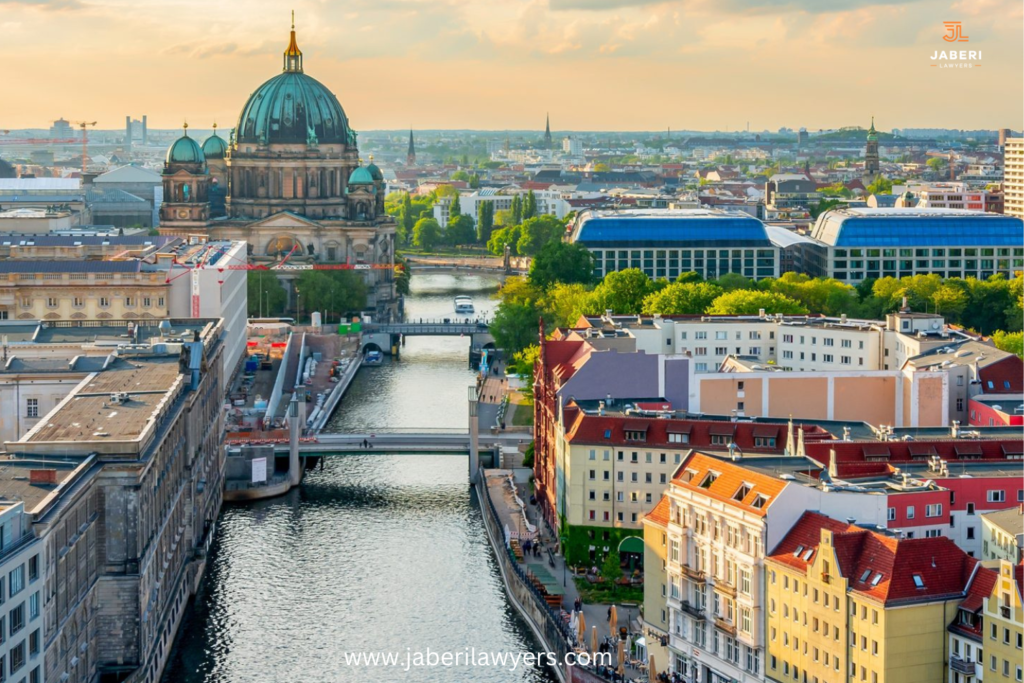Immigration and Visa Regulations for Employees in Germany: A Comprehensive Guide

As the world economy becomes increasingly interconnected, businesses are seeking opportunities in international markets, and Germany stands out as a leading destination. Known for its robust economy, innovation, and quality of life, Germany attracts thousands of skilled professionals each year. However, the process of relocating employees to Germany can be daunting due to the complexities of immigration and visa regulations.
At Jaberi Lawyers, we recognize the importance of ensuring compliance with immigration laws for businesses expanding into Germany. In this comprehensive guide, we will explore the essential aspects of Germany’s visa and immigration processes, equipping businesses and professionals with the tools they need to successfully navigate these challenges.
Why Germany? The Attraction for International Businesses
Germany is the powerhouse of the European Union, boasting a stable economy, a well-established legal system, and world-class infrastructure. The country is a magnet for industries ranging from automotive and engineering to information technology and life sciences. For businesses looking to tap into a skilled labor market, Germany offers a diverse pool of talent, and the government has established immigration policies aimed at facilitating the recruitment of qualified professionals.
However, while the country is open to skilled workers, entering the German labor market requires adherence to strict immigration and visa regulations. For businesses looking to expand their workforce with international talent, understanding these regulations is crucial.
Understanding Germany’s Work Visa Options
Germany provides a variety of work visas to accommodate different employment types and skill levels. The visa type required depends on the employee’s qualifications, job offer, and nationality. Below, we outline some of the key work visa categories:
1. Temporary Employment Visa
The temporary employment visa is designed for individuals taking up short-term employment in Germany. Whether your company is bringing in a specialist for a specific project or offering a short-term contract, this visa offers a flexible solution for temporary stays.
2. EU Blue Card for Highly Skilled Professionals
The EU Blue Card is one of the most popular visa options for highly qualified professionals from non-EU countries. It is designed for individuals with a higher education degree or equivalent qualifications who have secured a job in Germany with a certain minimum salary threshold. As of 2024, the minimum salary required for a Blue Card is €45,300.
The EU Blue Card allows non-EU nationals to work and live in Germany, offering a fast-track pathway to permanent residency after a few years of employment.
3. Intra-Company Transfer Visa
Many international businesses operating in Germany use the intra-company transfer visa to relocate key personnel to their German branches. This visa allows employees of multinational companies to move within the company’s global network while staying compliant with Germany’s labor laws.
Each of these visas has specific eligibility requirements, application procedures, and durations of stay. At Jaberi Lawyers, our team helps assess which visa type best fits your business and employee needs. Our expertise ensures that applications are processed smoothly and in compliance with German immigration laws.
Navigating the German Visa Application Process
The German visa application process is multi-faceted and requires precision. Missing a step or failing to provide the required documentation can lead to delays, added costs, and potential denial of the visa. Below is a step-by-step breakdown of what the visa application process typically involves:
Step 1: Completion of Application Form
The process begins with filling out a detailed application form that collects essential information about the employee, including their personal details, qualifications, and employment offer in Germany.
Step 2: Submission of Required Documents
A range of supporting documents must be submitted alongside the application form. Commonly required documents include:
- A signed employment contract from a German employer
- Proof of qualifications (degrees or certifications)
- Proof of accommodation in Germany
- Financial statements showing that the employee can support themselves during their stay
- A valid passport
Step 3: Visa Interview
In most cases, the applicant will need to attend a visa interview at the German consulate or embassy in their home country. This interview is a critical part of the process, where the consular officer assesses the legitimacy of the application and the purpose of the stay.
Step 4: Visa Issuance
Once all documentation has been submitted and the interview is completed, the German authorities will process the visa application. At Jaberi Lawyers, we offer tailored assistance throughout each step of the application process, ensuring that the documentation is accurate and that your business is fully compliant with all regulatory requirements.
Our legal experts work diligently to avoid common pitfalls that can lead to delays or rejection, saving both time and resources for businesses and employees.
Residency Permits for Employees: Securing Long-Term Stays
For employees planning extended stays or permanent relocation to Germany, securing a residency permit is essential. Germany offers two main types of residency permits:
1. Temporary Residence Permit
A temporary residence permit is suitable for individuals who are staying in Germany for a specific period, whether for employment, study, or training. This permit is usually tied to the employment contract and the purpose of the stay.
2. Permanent Settlement Permit
The permanent settlement permit, also known as the Niederlassungserlaubnis, allows individuals to live and work in Germany indefinitely. Typically, an individual is eligible for this permit after residing in Germany for several years under a temporary residence permit. Highly skilled professionals, such as Blue Card holders, may be eligible for permanent residency faster.
Jaberi Lawyers offers comprehensive support for both temporary and permanent residence permit applications. Our legal team ensures that every step of the process is managed efficiently, helping your employees settle in Germany without complications.
Compliance with Foreign Worker Regulations
Employing foreign workers in Germany comes with a set of legal obligations designed to protect both the employer and the employee. These obligations include:
- Work Permits: Employers must secure the appropriate work permits for their foreign employees before they can legally begin working in Germany.
- Minimum Wage Laws: Employers must comply with German minimum wage regulations, ensuring that foreign workers are paid fairly.
- Health Insurance: Employers are responsible for providing comprehensive health insurance for their employees, either through public or private health insurance schemes.
Non-compliance with these regulations can result in hefty fines and legal repercussions. At Jaberi Lawyers, we work with businesses to ensure that all legal requirements are met, mitigating the risk of penalties and fostering a compliant, harmonious workplace.
The Blue Card: A Pathway to Long-Term Success
The EU Blue Card is an excellent option for businesses looking to hire highly skilled non-EU professionals. To qualify for a Blue Card in 2024, the employee must meet several key requirements:
- They must hold a German degree or a recognized foreign higher education degree comparable to a German degree.
- They must have a signed employment contract with a German company for at least one year.
- The job offer must align with their qualifications.
- The employee must earn a minimum annual salary of €45,300.
- The employee must have valid German health insurance and be registered at an address in Germany.
For businesses, the Blue Card offers the advantage of attracting top international talent, while employees benefit from a streamlined path to permanent residency in Germany.
Jaberi Lawyers provides expert guidance in every step of the Blue Card application process. We ensure that all documentation is prepared and submitted correctly, increasing the likelihood of a successful application.
Partner with Jaberi Lawyers for Immigration Legal Services
Navigating Germany’s immigration landscape can be challenging without expert legal support. At Jaberi Lawyers, we offer a full range of immigration legal services designed to support businesses and individuals at every stage of the visa and residency process. From advisory consultations to the submission of applications, our experienced team is here to ensure compliance and expedite the process for your employees.
By partnering with Jaberi Lawyers, you can focus on growing your business while we take care of your immigration needs.
For expert immigration advice and assistance in navigating visa regulations in Germany, contact Jaberi Lawyers:
- Phone: +49 (0)40 413 499 87
- Email: contact@jaberilawyers.com
- Website: www.jaberilawyers.com
Related Blogs

From Blue Card to Settlement Permit: Your Comprehensive Guide to Permanent Residency in Germany
Germany is one of the most sought-after destinations for skilled professionals worldwide. If you hold an EU Blue Card, the p......

German Citizenship in 2025: Your Comprehensive Guide to Naturalization
As 2025 approaches, the path to obtaining German citizenship has evolved, offering improved opportunities for immigrants seeking sta......

Families United: Privileged Family Reunification under § 36 (3) AufenthG
As of March 1, 2024, Germany’s revised migration law has introduced a groundbreaking pathway for family reunification. This ......

